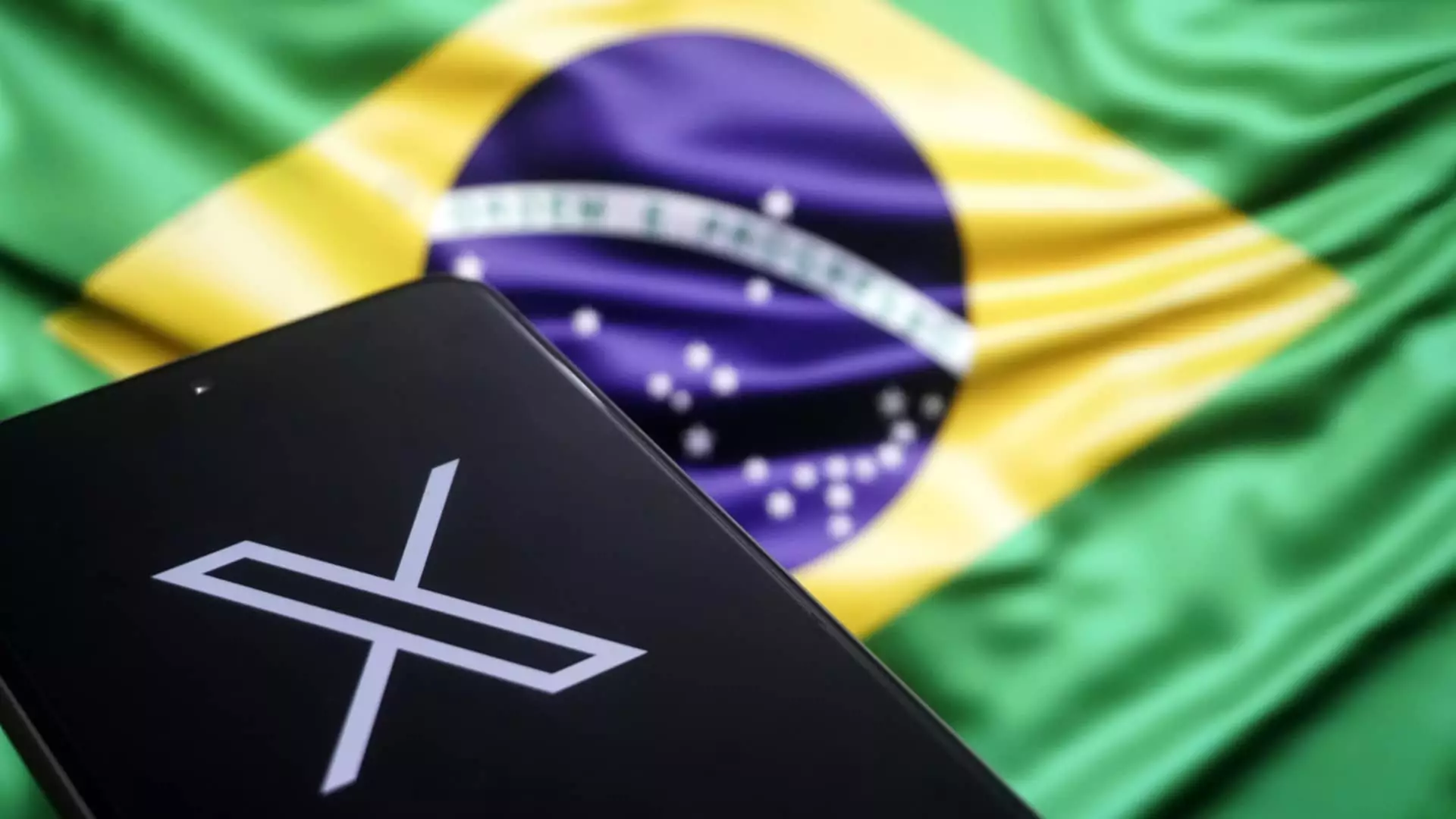After a prolonged legal tussle, Elon Musk’s social media platform, X, is returning to the Brazilian online ecosystem, much to the relief of its users. The reactivation follows a decisive ruling from Brazil’s Supreme Court, enabling the platform to once again function within the country’s borders. X expressed its commitment to Brazilian users through a recent post made from its global government affairs account, highlighting the significance of providing access to their services for tens of millions of citizens. The statement underscored X’s aim to uphold freedom of speech, yet remained cautious about adhering to local laws.
The friction between X and Brazil’s judiciary escalated on August 31 when the platform was temporarily suspended. The Supreme Court’s decision came as a consequence of non-compliance with directives issued by Minister Alexandre de Moraes, who demanded the removal of certain accounts and content that were deemed illegal under Brazilian law. This situation exposed Musk’s defiance toward the regulatory framework established in Brazil, primarily designed to combat hate speech and political misinformation. Rather than acquiescing to these demands, Musk initially opted to close X’s Brazilian headquarters and delay appointing a local legal representative.
The impasse didn’t just stir legal controversies; it attracted significant attention from investors looking to protect their stakes in Musk’s ventures. Reports indicated that pressure mounted for X to comply with Brazilian regulations by late September to avoid incurring daily fines. The stakes grew higher when Brazilian authorities threatened to freeze the business accounts of X and its subsidiary, Starlink. This threat, coupled with pressure from investors worried about financial repercussions, played a critical role in prompting the platform to rethink its stance.
As X sat on the sidelines, competitors such as Bluesky and Threads capitalized on the opportunity. Their user base experienced substantial growth during X’s suspension, shedding light on the competitive pressures Musk faced in the Brazilian market. The situation exemplifies not only the fragility of digital platforms in politically charged environments but also the adaptability of emerging competitors looking to capture market share when larger entities falter.
With the resumption of X’s operations in Brazil, the question of future compliance remains. The platform faces a dual challenge: sustaining its user base while adhering to the stringent legal requirements of operating in a country with robust internet regulations. The recent court authorization might mark a new chapter for X but also serves as a reminder of the delicate balance between innovation and regulation. Whether Musk’s vision for X can integrate successfully into Brazil’s digital framework without further run-ins with the law is a question that will linger as both users and investors watch closely.
X’s return illustrates the complex interplay of technology, politics, and public policy in today’s digital age. As the platform navigates the intricacies of operating in Brazil, its future trajectory will undoubtedly be influenced by ongoing legal requirements and competition from emerging platforms.

